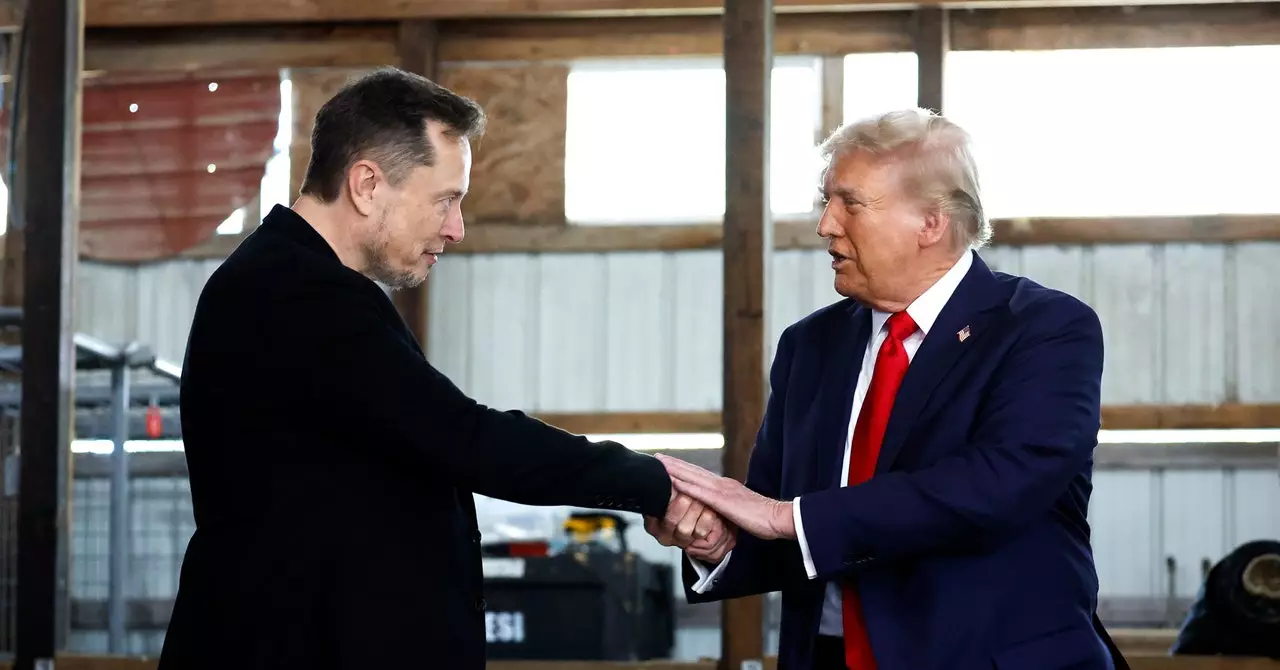Eight years ago, a seismic shift occurred in the U.S. electoral landscape that left many bewildered, including the small editorial team at Backchannel, where I served as lead. The aftermath of the election triggered profound introspection about the direction of our coverage. An editor’s frank observation in our team Slack channel captured a sentiment that echoed throughout the media: how could we continue to focus on technology stories amidst the rising tide of political upheaval that seemed to overshadow all else? This dilemma propelled me to write a column, not just as a response to our immediate surroundings, but as a conversation starter for my colleagues and readers alike.
In that piece, I posited that irrespective of the political turbulence enveloping us, the real transformative narrative—what I dubbed “the technological revolution”—remained unabated and crucial. Politicians, no matter how disruptive they might be, do not alter the fundamental trajectory set by advancements in technology. From microchips to neural networks, these tools are reshaping human existence and the essence of what it means to be human. Hence, it became our duty to keep chronicling this monumental journey, recognizing that history is often framed by the broader strokes of progress rather than the personalities that briefly occupy the stage.
Fast forward to the recent U.S. presidential election, where remarkably, the nation once again found itself navigating the complexities tied to the figure of Donald Trump. His victory was marked by a series of controversies and debatable qualifications that, under normal circumstances, would have sufficed disqualification but seemed to hold little weight in the eyes of voters. This recurrence has sparked comparisons between our current state and the trajectory we endured in previous years, leading to questions about the implications for American values, particularly as the country approaches its 250th anniversary.
While this predicament feels monumental, I find myself returning to the original assertion I made in 2016. Stewart Brand’s observation resonates loudly: the foundations of human nature remain steadfast, yet the rapid advancements in science and technology alter the fabric of our reality in irreversible ways. Future historians, perhaps including the likes of futurist Ray Kurzweil, may very well pinpoint our era as the juncture when microchips and sophisticated algorithms dramatically transformed societal structures.
Although my position has shifted from leading a publication to representing a singular viewpoint within a broader media environment, I feel compelled to reiterate and reframe my convictions: the impact of artificial intelligence (AI) truly outweighs the political machinations currently at play, including those surrounding Donald Trump. Journalism holds a critical purpose in ensuring accountability and transparency within the upcoming presidency. The challenges we face, including healthcare rights, civil liberties, and socio-political stability, overwhelmingly dominate our everyday lives and overshadow debates about technological advancement.
However, these discussions about AI and its ramifications continue to grow louder. The ongoing discourse about how to regulate or contain the burgeoning field of AI underscores the tension between innovation and governance. Observers have begun to question whether the incoming administration will alter the progress initiated by Joe Biden’s executive orders concerning AI. Compounding these concerns is the looming presence of figures like Elon Musk, whose extensive ties to the AI sector could inadvertently thrust private interests into the public domain, shaping policy to fit corporate agendas rather than societal needs.
Discussions surrounding the regulation of AI are not merely hypothetical; they postulate that the foundational principles laid down today will dictate the operational framework of AI technologies in the future. The specter of international competition, primarily posed by China’s advances in technology, raises urgent questions about how we manage our own technological capabilities. It is crucial to recognize that the personal quirks and ethical considerations of AI developers may significantly tilt the balance of power in this evolving landscape.
With the political strife fresh in my mind, I found myself at an AI company soon after the election results were announced. Amidst interviews with top leaders and engineers, I couldn’t help but reflect on the dismal implications of political events as they coexist with the potential of transformative technology. Yet, it is precisely this tension—the juxtaposition of governance and innovation—that makes the responsibility of covering tech all the more vital.
Even while grappling with personal disappointment, my commitment to documenting the advancements in AI and technology remains unwavering. After all, it’s evident that these developments represent a story of remarkable significance and transformational potential, one that will far outlast any political figure or regime. As we move forward, embracing our role as chroniclers of this evolution becomes imperative, for the arc of technology provides hope and a narrative that can truly define our future.


Leave a Reply